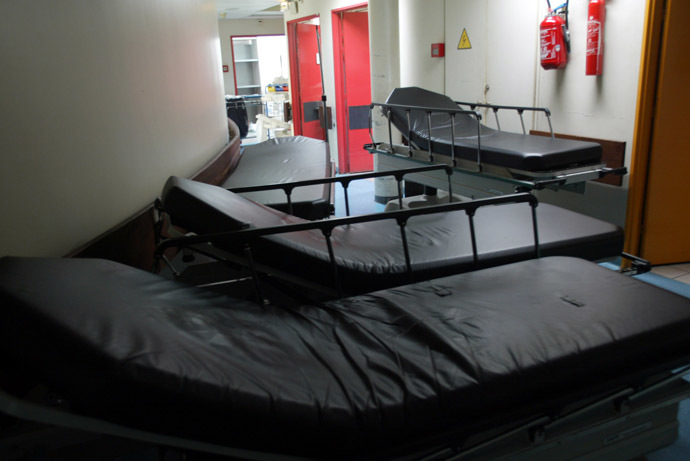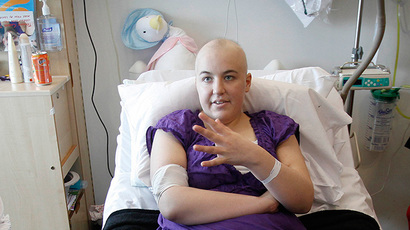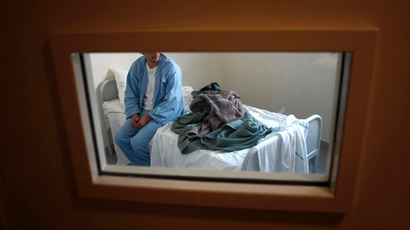Mental health patients driven to suicide, lack of hospital beds blamed

At least 8 people have died in the past two years after being denied access to a dwindling number of psychiatric beds in UK hospitals, with many unable to source mental health treatment due to service cutbacks.
The investigation, conducted by Community Care and BBC News, found seven people with mental health issues had committed suicide after being unable to seek psychiatric help, while one homicide was also linked to bed shortages in hospitals.
According to Community Care, 468 beds have been closed in mental health trusts over the past year, while more than 2,000 mental health facilities have been shut down since April 2011.
The charity also said existing mental health facilities were severely stretched, with some trusts full to bursting with occupancy rates of over 120 percent.
Previous figures obtained by the BBC showed 1,711 beds in psychiatric wards had been closed between April 2011 and 2013, despite warnings from doctors, nurses and health officials.
The investigation also found NHS England was dismissive of complaints made by Trust hospitals regarding the lack of mental health bedding available.

In the summer, head of Camden and Islington NHS Foundation Trust, Wendy Wallace, warned chiefs at NHS England there were no mental health beds in public or private hospitals.
“I could not envisage a situation where all the acute beds in London were full and there was not even an investigation into the situation nor a plan of action,” she wrote.
Speaking to the BBC, Wallace also said mental health patients were in “very high need” of beds in order to seek treatment.
“Unless we get some attention, unless we get some understanding of what's happening in the system, and some resources to be able to deal with it, it won't improve,” she said.
The figures follow warnings by the Royal College of Nursing earlier this month, saying that mental health services in the NHS were “under unprecedented strain.”
According to the RCN, there were more than 3,000 fewer nurses on mental health wards, despite demand for the facilities rising by 30 percent.
“Money is tight in the NHS, but if we are serious about treating mental illness in the same way as physical illness, then people must be offered what they need before reaching crisis point,” said RCN general secretary Dr. Peter Carter.
“If staffing levels and services are cut back further, then services will continue to crumble, which would be a tragedy for us all, to say nothing of all the thousands of private tragedies that could result.”
Despite the figures, the Department of Health insists mental health remains a key priority for the government, and that they have boosted investment in treating patients since 2010.
“Mental health is a priority for this government which is why we announced last month an additional £120 million to improve care and introduced the first ever waiting time standards, which underpins our legislation on parity of esteem,” a Department of Health spokesperson said.














